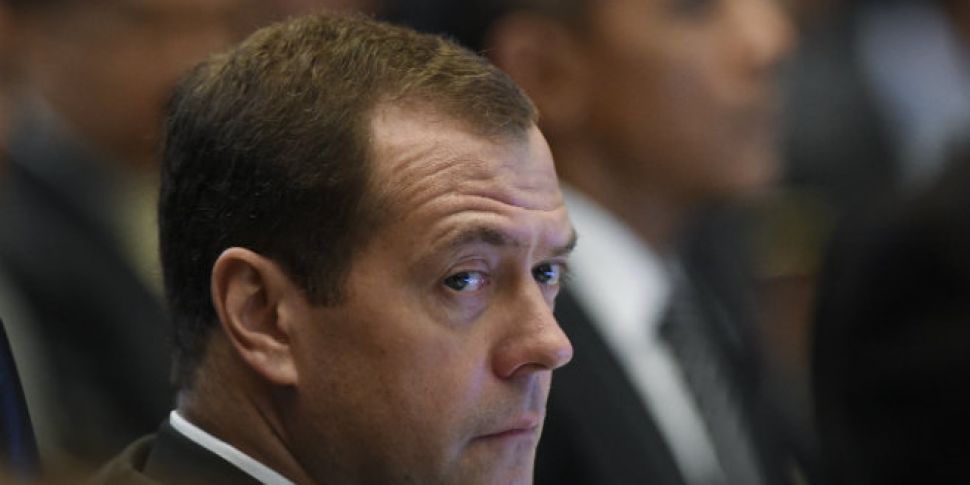Russian Prime Minister Dmitry Medvedev has said tensions between Moscow and the West have sent the world into a "new Cold War".
Speaking at the Munich Security Conference, Mr Medvedev blamed US and European leaders for the souring of relations with Russia.
"We have slid into a new period of Cold War," he said.
"Almost every day we are accused of making new horrible threats either against NATO as a whole, against Europe, or against the US or other countries."
He also rejected accusations that Russian planes have bombed civilians in Syria - saying it was "just not true".
"There is no evidence of our bombing civilians, even though everyone is accusing us of this," he added.
"Russia is not trying to achieve some secret goals in Syria. We are simply trying to protect our national interests."
It came moments after French Prime Minister Manuel Valls said Russia must stop killing civilians if there is to be an end to Syria's five-year civil war.
"France respects Russia and its interests ... but we know that to find the path to peace again, the Russian bombing of civilians has to stop," Mr Valls said.
Mr Medvedev said the aim Moscow's aerial bombardment was to stop extremist groups getting to Russia.
He urged better dialogue between Moscow and the West, citing Friday's meeting between the Pope and head of the Russian Orthodox Church following a 1,000-year split in Christianity.
"Just yesterday, we saw a shining example of what happens when one starts to move towards someone - the meeting between his Holiness Patriarch Kirill and Pope Francis," he said.
"Before that those two Christian churches did not talk for centuries."
On Thursday, Syrian President Bashar al-Assad vowed to retake the entire country, after it was revealed a truce has been agreed for a "nationwide cessation" of bloodshed in a week's time.
Mr Assad said he supported peace talks, but negotiations do "not mean that we stop fighting terrorism".
Islamic State (IS), al Nusra and other groups will not be involved in the ceasefire - and Russia has said it will continue its bombing campaign.
'Hyper-terrorism'
More deadly attacks in Europe are a certainty as the continent enters an era of "hyper-terrorism", France's Prime Minister has warned.
Also speaking at the Munich Security Conference, Mr Valls said the terrorist threat had increased because the ideology driving terrorists was "at the heart of our societies".
He said: "We have entered - we all feel it - a new era characterised by the lasting presence of 'hyper-terrorism'.
"We must be fully conscious of the threat, and react with a very great force and great lucidity. There will be attacks. Large-scale attacks. It's a certainty. This hyper-terrorism is here to stay.
"The force of the ideological fascination is formidable, and if we have changed era it is because this hyper-terrorism is in the heart of our societies."
France is still under a state of emergency after an Islamic State terror team killed 130 people in a series of attacks on bars, the Bataclan concert hall and the national stadium on 13 November.
The attacks came 10 months after jihadists targeted the offices of the Charlie Hebdo satirical weekly and a Jewish supermarket, killing 17 people.









